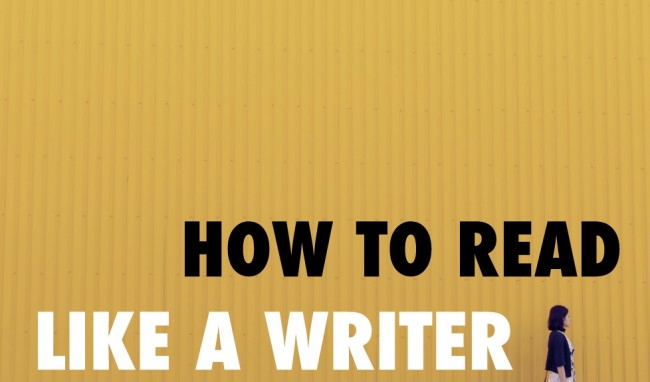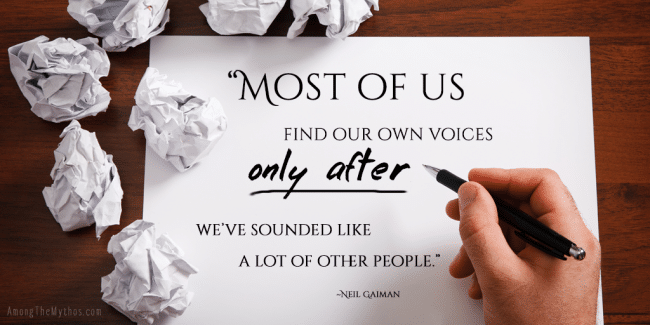Most of us write because we've read something wonderful.
Those words opened new worlds, birthed new perspectives, and gave rise to ideas far greater than any we had before. Understanding and imagination grew side by side; when we read, we changed our world, and we write because on some level, we want to do the same for others. Do you want to write something that affects others the way you were affected? Then you have to learn to read like a writer—with your brain turned on.

Why Read Like a Writer
“If you don't have time to read, you don't have the time (or the tools) to write. Simple as that.”
― Stephen King
Reading is absolutely important.
You have to read in your genre and out of it. You have to read things you don't like and things you do. Here's one of those items agents want you to know: who's similar to you in the publishing field? They want to know, from you, what shelf your book will go on.
I know this point has been belabored everywhere, but it can't be said enough. You have to read if you want to write well. To do otherwise is like trying to become a weight-lifter without eating protein.
“Read, read, read. Read everything—trash, classics, good and bad, and see how they do it. Just like a carpenter who works as an apprentice and studies the master. Read! You'll absorb it. Then write. If it's good, you'll find out. If it's not, throw it out of the window.”
―William Faulkner
Okay, enough introduction. First things first: go find your favorite book and take it off the shelf. You're going to need it.
How to Read Like a Writer
Here are four steps to read like a writer:
1. Location, Location, Location
Did you find that book yet? Great. Now, I want you to turn to a passage that means something to you, or moved you in some way.
We all are moved by passages we read, regardless if it's fiction or non-fiction. The point is that in order to study it, you need to be able to find it again—but trusting memory to locate these things isn't necessarily the best practice. You're going to need to make a note of the location.
Making that note can be super-easy in an e-reader, since you can highlight or bookmark that section with a couple of taps. For a regular book, you can also highlight it, or bend down the corners of pages, or try to leave physical bookmarks in the page (though they can fall out). Honestly, though, those can mutilate your book. There's a better way: Post-it Note Page Markers. Check these things out:

Colorful post it tag markers inside books.
They leave no permanent marks in your book, they're easy to remove later, and for convenience, you just can't beat 'em. Good deal.
Did you find the passage in your book that moved you? Cool. On to the next step.
2. Ask Three Big Questions
There are three big questions to ask when you read like a writer, and I know they'll seem obvious, but bear with me: what, why, and how.
What Was Powerful?
What kind of passage is it? Was it description that got your heart racing? Was it the dialogue, or the way the characters were developed? Was it the explanation of a principle you never quite grasped before, or facts you never knew?
Identify what kind of passage it is, even if you have to make up a title for it. You don't have to know the literary term. This is all about what kind of thing it feels like to you. You're essentially placing it against your literary taste-buds and trying to name the flavor.
Why Was it Powerful?
This is gonna be harder. The first question simply asked you to recognize the literary equivalent of stimulus to your five senses. You felt something, which anyone can do. But now, you have to try to figure out why it mattered.
Why this passage, as opposed to all the other times that character spoke, or that concept was touched upon? Why was this one different? Why did it stand out from the rest? The answers can be along the lines of:
- This revealed something about the character's past that changes my entire perspective of her choices.
- This emphasized what the author was trying to say, highlighting the importance of the solution offered or the awfulness of the problem outlined.
- I knew this character lived on a mountain in Tibet, but not until this section did I think what that would mean for her view every morning of clouds and no ground—so different from mine (assuming you don't live on a mountain in Tibet) that it actually explains her assumptions.
Figure out why. Be able to put it in a sentence.
No one else has to see this sentence. That means it can be sloppy and oddly worded. You don't have to make it pretty; you just have to be able to define it for yourself.
How Did it Achieve That Power?
And this is the step that will always (at least for me) take the longest. Now that you know what was effective and you know why it affected you, you have to start figuring out the tools used.
Every writer has a set of tools, but most of them can be summarized fairly neatly. There's “show, don't tell” and “less is more.” There are basic grammatical skills (which are learned, not inherent) such as punctuation and consistent verb tense. There's good vocabulary.
But while every sculptor uses the same hammer and chisel, the end result never looks the same. Your goal is to figure out how this author did it.
- Was it the word-choice? Sometimes the choice of unusual words, or simple words, or specific words can make the difference.
- Was it the rhythm? There is a rhythm to good prose writing. Read a beautiful passage out loud if you don't believe me. If you were to swap words with synonyms of different syllable count, the rhythm would totally change.
- Was it the viewpoint? Did this passage offer a perspective you hadn't seen before?
Crazily, sometimes it's what the author doesn't say that makes it work. Things left unsaid for the reader to apply can be incredibly powerful.
“If a writer of prose knows enough of what he is writing about, he may omit things that he knows, and the reader, if the writer is writing truly enough, will have a feeling of those things as strongly as though the writer had stated them. The dignity of movement of an iceberg is due to only one-eighth of it being above water.”
—Ernest Hemingway (Read more about the iceberg theory.)
Again, no one has to see this but you. You aren't teaching a class, so you don't have to make it sound good. You can correct yourself, think it out, verbally process; you can work through it at whatever pace you need. No shame or embarrassment is allowed.
It's okay to start with, “I just like it, okay?” Great! Now let's figure out why.
3. Mimic Your Favorite Books
Okay, I already know some of you will panic about this.
No one wants to sound derivative, I know. No one wants to sound like someone else; we want to have our own voice. No one wants to plagiarize.
I'm not asking you to do any of those things. What I'm asking you to do is the same thing every musician, sou chef, Olympic athlete, or professional dancer must do on the way to greatness: before you can learn your own style, you have to learn someone else's.
Here's a quote from Neil Gaiman I want you to take to heart:

“Most of us find our own voices only after we’ve sounded like a lot of other people.” —Neil Gaiman
Take the passage that meant a lot to you—and try to imitate what you see there in your own writing.
It may take some time. It may require you to improve your vocabulary or study more of the basic principles of writing well. That's okay.
This is how you learn: by imitation, then variation. It's like watching Gordon Ramsay makes a Beef Wellington, imitating it, and only then putting a spin on it all your own.
4. Practice
You can do this.
I know you can because every single writer on earth does it. You already have done it, in fact; you learned to speak by listening to those around you, and in time, you developed your own way of using your native tongue. You learned to walk by watching those around you, but you now have your own swagger and stance—so unique that police could potentially identify you by your footprints alone.
You can do this. Read the books that inspired you to write. Note where the best parts are; ask yourself what, why, and how they pulled it off. And in time, you'll be able to gift your readers with the same life-changing experience that so affected you.
Which passages affected you so much that you decided to become a writer? Let us know in the comments below.
PRACTICE
Take a favorite passage from someone else's book (make it a small one—a paragraph or so) and analyze it the way this article says. See if you can answer the three questions of what, why, and how. After that, be brave: share in the comments section a small passage of your work in that style to make it more effective. Don't be afraid! No one expects it to be perfect the first time through.
Don't forget to encourage your fellow writers as they learn to read like a writer and apply it to their own work.
Best-Selling author Ruthanne Reid has led a convention panel on world-building, taught courses on plot and character development, and was keynote speaker for The Write Practice 2021 Spring Retreat.
Author of two series with five books and fifty short stories, Ruthanne has lived in her head since childhood, when she wrote her first story about a pony princess and a genocidal snake-kingdom, using up her mom’s red typewriter ribbon.
When she isn’t reading, writing, or reading about writing, Ruthanne enjoys old cartoons with her husband and two cats, and dreams of living on an island beach far, far away.
P.S. Red is still her favorite color.



Great article, Ruthanne! I’m not only a writer; I’m also an editor and writer mentor. I recommend this practice to my clients and students so they can learn to “see into” writing and understand how other authors put their prose together. Some call the technique close reading. By learning how to look into other authors’ prose, I believe a writer learns how to look inside their own, a skill which is essential to the editing process. Going to add a link to this article to my rec reading list for my clients!
http://www.word-edge.com
fictionclinic.com
Great article Ruthanne! I use Evernote and voice to text to take notes when I read. Then later I can easily turn those notes into my own content. A question I ask when I read is “How does this move me to action?”
Melody, that’s a great idea! I really like that tip!
This was a great article, Ruthanne! Just one thing- it could be made a whole lot more helpful with examples. Personal examples, perhaps? I’d really like to see some of the answers that YOU have for the questions you’ve posed up here!
Thanks, Jugal! I have a ton of examples, most definitely. 😀 I just didn’t want to share them lest they don’t match my readers’ examples – and I wanted to be sure that whoever read this could apply it to what THEY read.
I have one answer right now for you: Ray Bradbury’s short story, “Heart Transplant.” It’s one of the first I’d ever read by him, and it not only punched me in the gut, but it stayed with me. I won’t spoil it for you, but the very ending was utterly joyous and horrifically, unrelentingly sad at the same time, and I’ve never forgotten what he did, why, and how it affected me.
Just ordered the short stories of Ray Bradbury from the library. Looking forward to reading “Heart Transplant,” to see what resonated with you, Ruthanne. 😉
Great post. Just what I needed to read (like a writer 😉 today.
That’s well put!
Fantastic, Jenny – and ten points for your phrasing. 🙂
This is great! Thanks a lot!
You’re so welcome, Siti! I’m glad it helped!
Good advice! I read a variety of things and when I learn something deeply or profoundly which adds to my life experience, I often write to the author to share how their work impacted me. In the last decade, I found myself reading medical texts related to some neurological problems and corresponding with the authors, I have read some fiction through a local book club and also pay attention to what others suggest.
Heather, that makes you one of the really rare and wonderful readers who reach out. Having been on the receiving end, I can’t tell you how much that means. On behalf of all of us authors, thank you!
Your welcome!
Reading is absolutely essential for life! Thank you!
You’re so welcome, LaCresha! 🙂 I’m glad you agree!
I don’t think that there was one specific book/passage that inspired me to write (unless you’re including the Bible). But there is a scene, from Karen Kingsbury’s “The Return”, where the main character finally comes back to God, that was really powerful, and that I’ve actually based the salvation scene in my book on.
It was powerful because all of the secrets finally came out, and the main Character’s arrogance finally broke away, and he realized he needed Christ. It was the climax scene, so the reader spends almost an entire book waiting for it.
I try to base my scene on it without plagiarizing. I long to have that kind of gripping power that makes the reader unable to put it down. Great article!
Reagan
“Whatsoever ye do, do unto the glory of God.”
Excellent expression of your hearts desire. To help another get relief from their burden.
It’s amazing to put that in writing and you just did!
Thanks for sharing… I will move forward to write, by the help from God.
Thanks Virginia!
That’s very moving, Reagan! I really appreciate you sharing this. It sounds like something many of us have experienced, too; I doubt plagiarizing will be an issue. 🙂
Thanks, Ruthanne!
A great post Ruthanne. I’m going off right now to find a passage and work on it;)
I look forward to it! 😉
A wonderful post. I’ve never thought to read so deeply. Am going off now to find a passage;) Thank you Ruthanne
Thank you, Oddznns! 🙂 I love your username, by the way.
Well said, Ruthanne!
I fell in love with reading during my early-grades years. For many years I’ve only read fiction, leaning toward the literary genre, but more recently have added non fiction again. (A balance thing?) Hundreds and hundreds of books have all played a roll.
It’s often the economical use of words that paints the clearest picture.
I believe the ones that touch and affect us most, are ones of: less is better.
Example 1: Khaled Hosseini in ‘And The Mountains Echoed’: “…she is happy enough to be near him, with him–her brother–and as a nap slowly steals her away, she feels herself engulfed in a wave of absolute calm.”
# 2: Thomas Keneally in ‘The Daughters of Mars’: ” … This was one of those Christmases Naomi had read of–when joy is a simple achievement.”
# 3: Michael Ondaatje in ‘The Cat’s Table’: ” …There was darkness all around us, but we knew how to walk through it. We slid quietly into the pool … and floated on our backs. Silent as corpses we looked at the stars. We felt we were swimming in the sea, rather than in a walled-in pool in the middle of the ocean.”
There are so many thousands of examples that intrigue and inspire and take you on a journey.
That’s why we keep on reading and along the way, create worlds of our own with our own words and new stories.
Thanks for the post, Ruthanne!
That’s fantastic, Danie! I love these recommendations. These are fantastic, and you’re so right; reading outside our genres can be a powerful and educational experience.
Well-said! 🙂
Oh, I love this! It is great advice and I will definitely try it. Interesting thoughts!
-Amy
I’m so glad to hear that, NIkki and Amy! 🙂 Go for it!
🙂 Thanks!
That was an awesome post! Bravo! I’m gonna re-read my all time favorite Fountain Head again I guess.
Thanks, Naga! I’m so glad to hear it! Enjoy that Rand. 🙂
Love this post. I notice that I’ve completely changed the way I read since I’ve started writing. Sometimes I have to turn off the writer’s brain to enjoy the book! 🙂
I know just what you mean, Penelope! It’s an odd balance between feeding yourself good, magnificent words without dissecting it all to death. 🙂